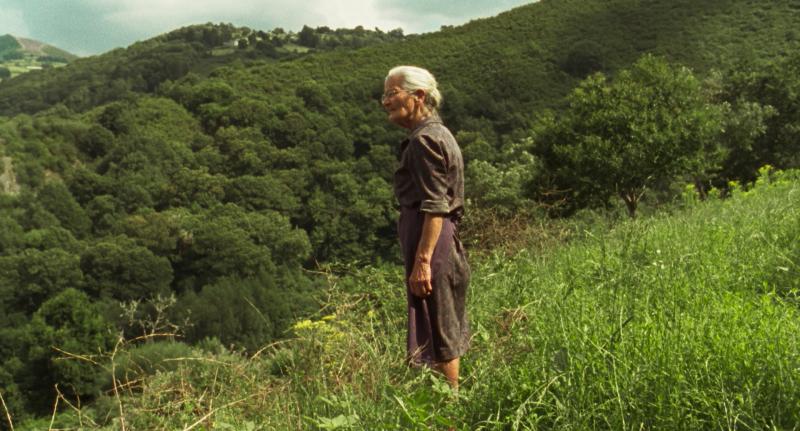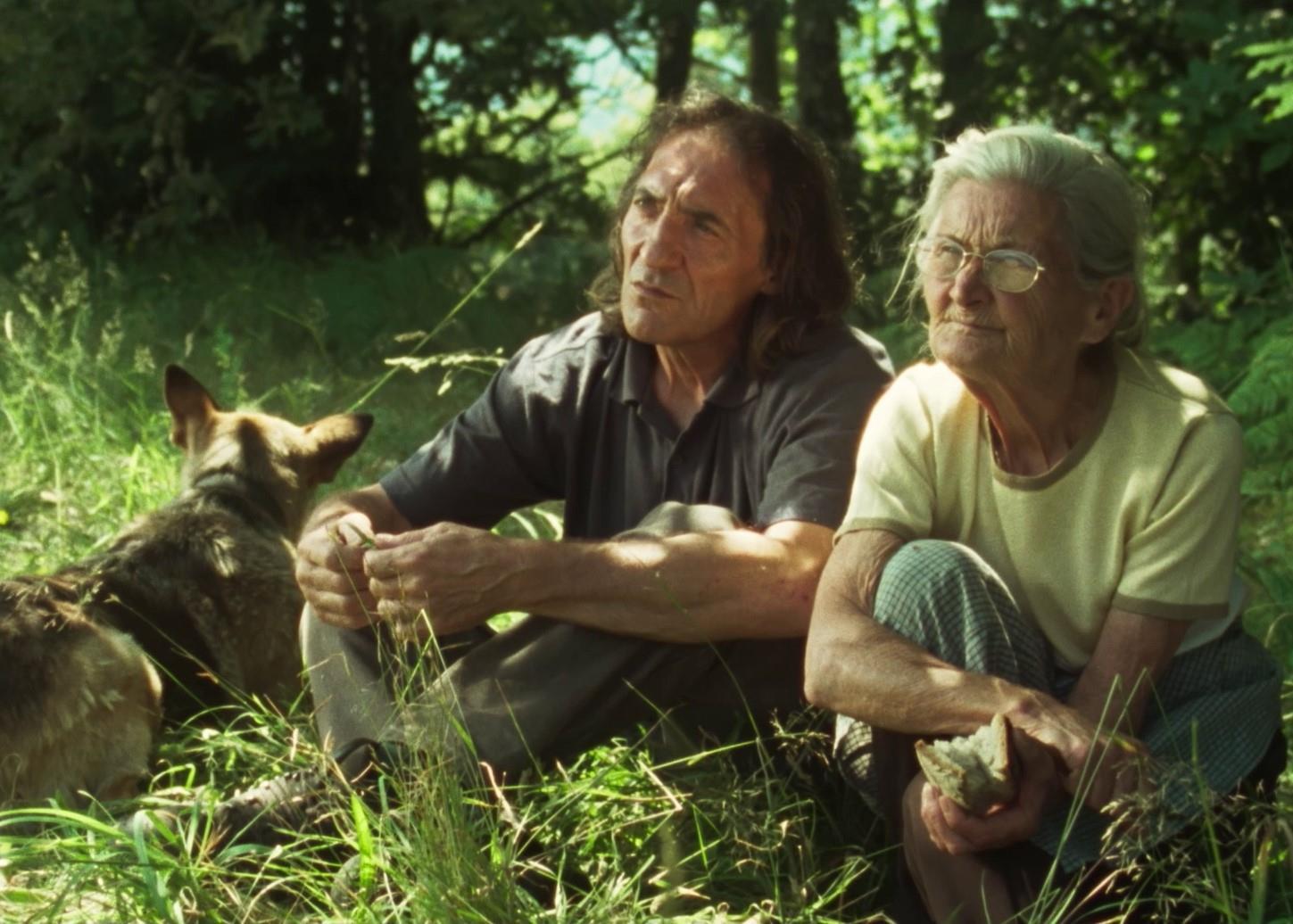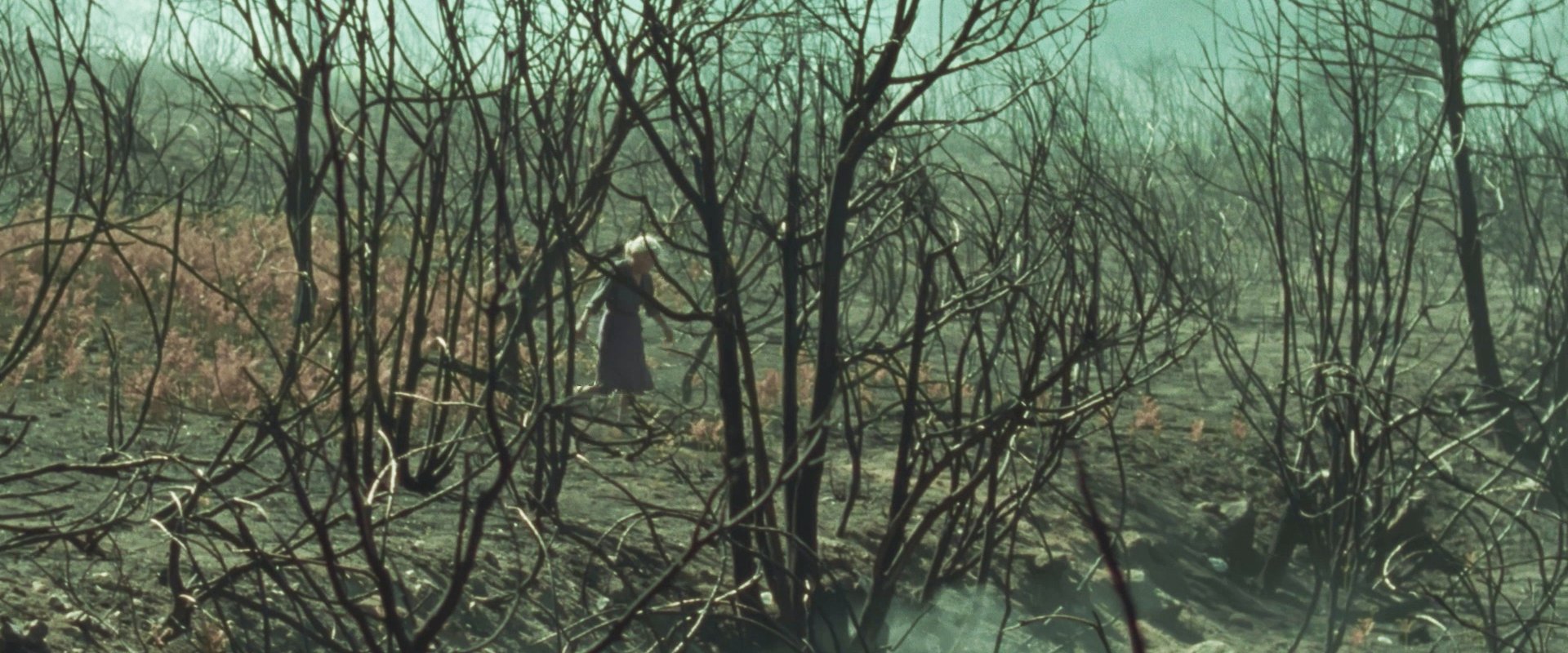Fire Will Come review - slow-burning Spanish beauty | reviews, news & interviews
Fire Will Come review - slow-burning Spanish beauty
Fire Will Come review - slow-burning Spanish beauty
Rewarding rumination on a rural firestarter's return

This lovely, contemplative Cannes prize-winner has something to teach us in testing times. Filmed in director Oliver Laxe’s grandparents’ Galician village, it observes convicted arsonist Amador’s return from jail to the fire-prone landscape he’s blamed for devastating.
The land, lush and sodden early on, has a painterly palette, and Laxe drinks in its supernal sights. A great bridge appears spindly between mountains, mum Benedicta hides from rain in a mimosa’s hollow womb, and morning starts with fog rising like clouds from the valley. Fire and heat are nursed, whether it’s Amador crisping bread on the stove’s edge or a corpse sent for cremation. It’s 34 minutes before anyone hurries. If Laxe’s framing of picturesque tableaus can seem overdone, they repay his worship, being ephemerally awesome beyond special effects. The director grips by this immersion in his ancestral homeland, Amador’s subtle ostracization within it, and the tremors of dread around his return.
 The quietly rhapsodic use of Leonard Cohen’s “Suzanne” as tentative looks of tenderness pass between Amador and vet Elena, the sun sets, and a cow peers at us ruminatively risks ridicule, but becomes profound. Amador’s later wounded, wordless entreaty on seeing Elena once she knows his past shows his dashed hopes.
The quietly rhapsodic use of Leonard Cohen’s “Suzanne” as tentative looks of tenderness pass between Amador and vet Elena, the sun sets, and a cow peers at us ruminatively risks ridicule, but becomes profound. Amador’s later wounded, wordless entreaty on seeing Elena once she knows his past shows his dashed hopes.
Laxe named and wrote his protagonists around the non-professionals playing them. Amador Arias’s long head suggests the skull beneath the skin; he has the strong-boned features of a native Latin American not their conquistadors, and also somewhat recalls Antonio Banderas, if life had shriven him more. His physical presence veers between weary matinee idol, and Frankenstein’s hulking monster fleeing the mob. Benedicta Sánchez as his mother is shrunken by age but implacably protective, and an amusingly brazen matchmaker. Both are characters set firmly in a landscape, traversing it as evenly as cattle or water. Only Elena Mar Fernández’s vet, an urban emigrant living in a village which seems a relative metropolis, seems at all separate from the soil, and an actor in a film.
 When fire savages the region again – as it does in Galicia every year, for reasons including politics and property as well as climate and arson – Laxe follows overstretched fire-fighters as they tackle an actual inferno. Desperate efforts to stem the flames, and the prising of a broken old man from his burning farm, make a devastating contrast with the early idyll.
When fire savages the region again – as it does in Galicia every year, for reasons including politics and property as well as climate and arson – Laxe follows overstretched fire-fighters as they tackle an actual inferno. Desperate efforts to stem the flames, and the prising of a broken old man from his burning farm, make a devastating contrast with the early idyll.
Amador, who may be scapegoat or culprit, is brutally blamed by his scared, stressed neighbours. “If they hurt others, it’s because they hurt too,” Benedicta says, suggesting a natural balance we’re all faced with now.
The future of Arts Journalism
You can stop theartsdesk.com closing!
We urgently need financing to survive. Our fundraising drive has thus far raised £49,000 but we need to reach £100,000 or we will be forced to close. Please contribute here: https://gofund.me/c3f6033d
And if you can forward this information to anyone who might assist, we’d be grateful.

Subscribe to theartsdesk.com
Thank you for continuing to read our work on theartsdesk.com. For unlimited access to every article in its entirety, including our archive of more than 15,000 pieces, we're asking for £5 per month or £40 per year. We feel it's a very good deal, and hope you do too.
To take a subscription now simply click here.
And if you're looking for that extra gift for a friend or family member, why not treat them to a theartsdesk.com gift subscription?
more Film
 Urchin review - superb homeless drama
Frank Dillane gives a star-making turn in Harris Dickinson’s impressive directorial debut
Urchin review - superb homeless drama
Frank Dillane gives a star-making turn in Harris Dickinson’s impressive directorial debut
 Mr Blake at Your Service review - John Malkovich in unlikely role as an English butler
Weird comedy directed by novelist Gilles Legardinier
Mr Blake at Your Service review - John Malkovich in unlikely role as an English butler
Weird comedy directed by novelist Gilles Legardinier
 Don't Let's Go to the Dogs Tonight review - vivid adaptation of a memoir about a Rhodesian childhood
Embeth Davidtz delivers an impressive directing debut and an exceptional child star
Don't Let's Go to the Dogs Tonight review - vivid adaptation of a memoir about a Rhodesian childhood
Embeth Davidtz delivers an impressive directing debut and an exceptional child star
 One Battle After Another review - Paul Thomas Anderson satirises America's culture wars
Leonardo DiCaprio, Teyana Taylor, and Sean Penn star in a rollercoasting political thriller
One Battle After Another review - Paul Thomas Anderson satirises America's culture wars
Leonardo DiCaprio, Teyana Taylor, and Sean Penn star in a rollercoasting political thriller
 Steve review - educator in crisis
Cillian Murphy excels as a troubled headmaster working with delinquent boys
Steve review - educator in crisis
Cillian Murphy excels as a troubled headmaster working with delinquent boys
 Can I get a Witness? review - time to die before you get old
Ann Marie Fleming directs Sandra Oh in dystopian fantasy that fails to ignite
Can I get a Witness? review - time to die before you get old
Ann Marie Fleming directs Sandra Oh in dystopian fantasy that fails to ignite
 Happyend review - the kids are never alright
In this futuristic blackboard jungle everything is a bit too manicured
Happyend review - the kids are never alright
In this futuristic blackboard jungle everything is a bit too manicured
 Robert Redford (1936-2025)
The star was more admired within the screen trade than by the critics
Robert Redford (1936-2025)
The star was more admired within the screen trade than by the critics
 Blu-ray: The Sons of Great Bear
DEFA's first 'Red Western': a revisionist take on colonial expansion
Blu-ray: The Sons of Great Bear
DEFA's first 'Red Western': a revisionist take on colonial expansion
 Spinal Tap II: The End Continues review - comedy rock band fails to revive past glories
Belated satirical sequel runs out of gas
Spinal Tap II: The End Continues review - comedy rock band fails to revive past glories
Belated satirical sequel runs out of gas

Add comment